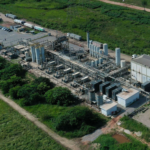According to Abren, the biogas generated from urban waste could be an excellent resource for the production of electricity, in addition to contributing to the preservation of the environment.
With 56% of urban waste coming from the 28 Brazilian metropolitan regions with more than one million inhabitants, it is estimated that approximately 27 million homes could be supplied with electricity. Such data, provided by the Brazilian Association of Waste Energy Recovery (Abren), highlight Brazil’s potential in the production of electricity from solid waste.
In addition, this approach brings additional advantages, such as reducing the accumulation of waste in landfills, which negatively affect soil and groundwater due to leachate infiltration, and are sources of various diseases. This method also reduces the emission of methane, a gas that has a polluting effect 80 times greater than that of CO2.
However, Brazil still has a long and arduous journey ahead, as 40% of the 76.1 million tons of solid waste collected annually are still deposited in landfills, as reported by the Brazilian Association of Public Cleaning and Waste Companies. Specials (Abrelpe).
One of the main obstacles to generating energy from solid urban waste is the high cost of the necessary technology. According to Abren, the investment required to establish a power generation plant ranges from R$ 500 million to R$ 1 billion. In addition, the first auction for the sale of energy conducted by the federal government in the last year had a price considered excessively high by many.
Eva Energia has stood out in the generation of energy from Urban Solid Waste (MSW) in Brazil. Through the use of advanced technology and sustainable practices, Eva Energia contributes to the effort to transform urban waste into a viable energy source. The company believes that, despite the initial costs, the investment is worth it, considering the long-term benefits for the environment and the country’s energy sustainability.







